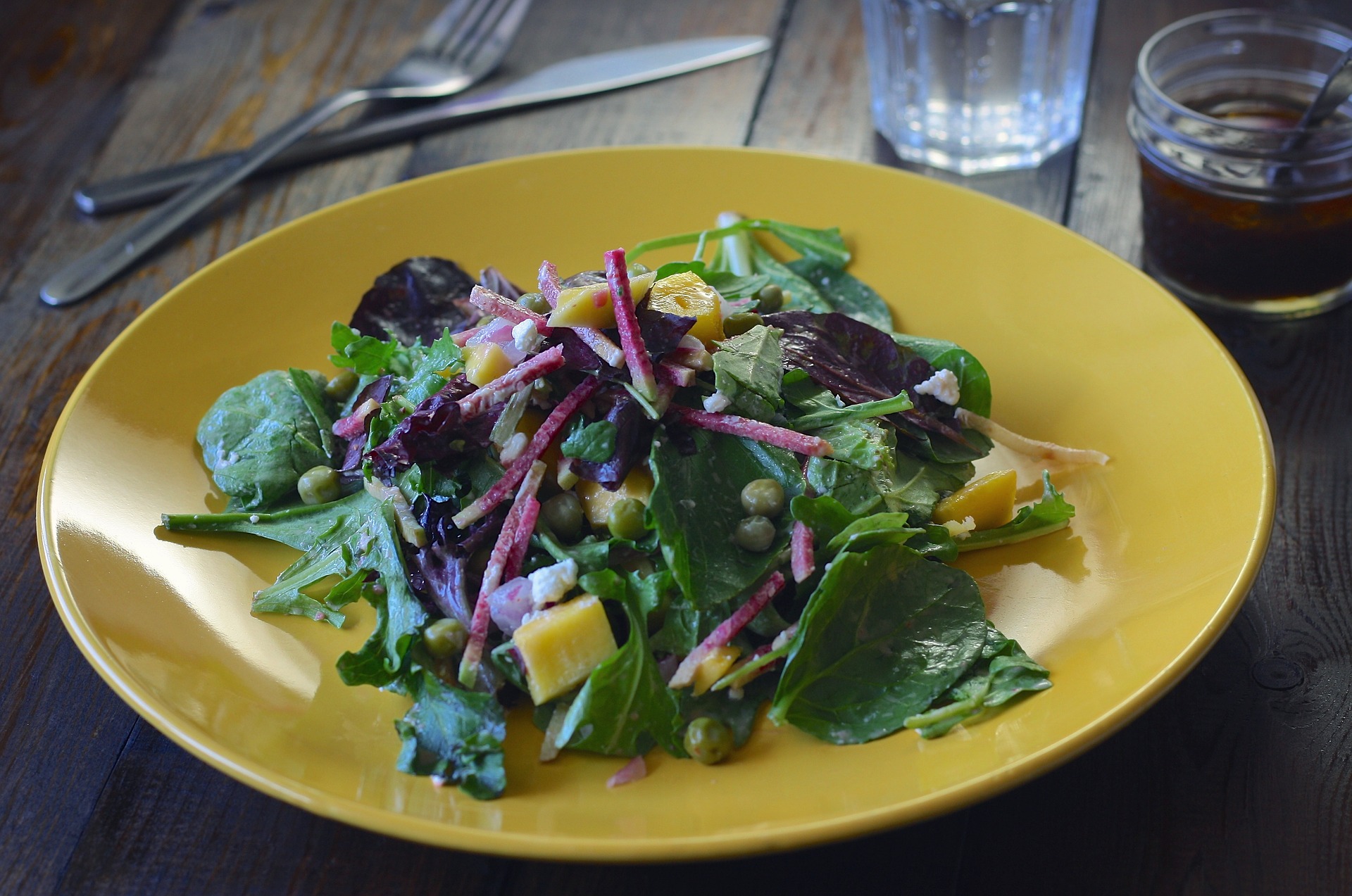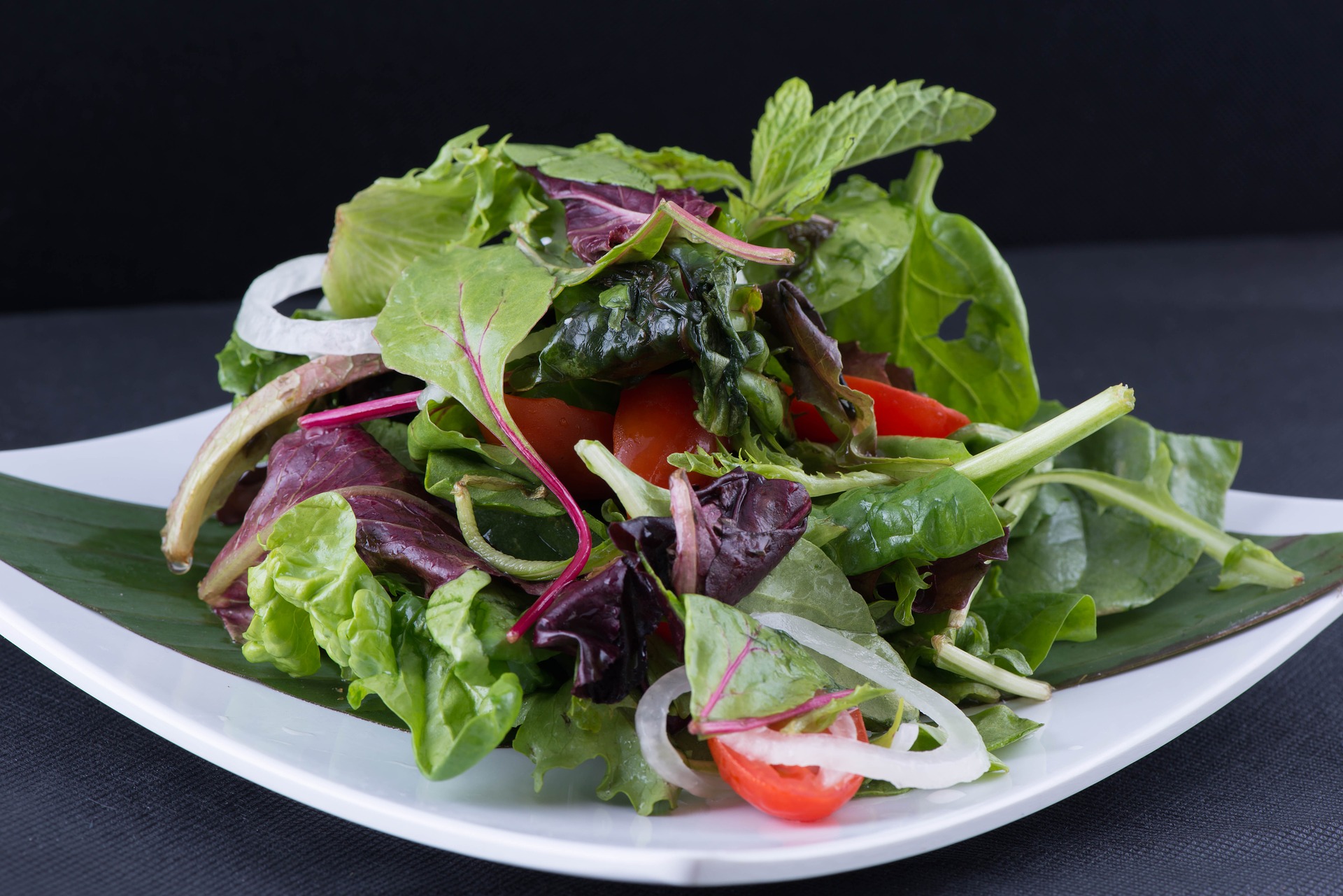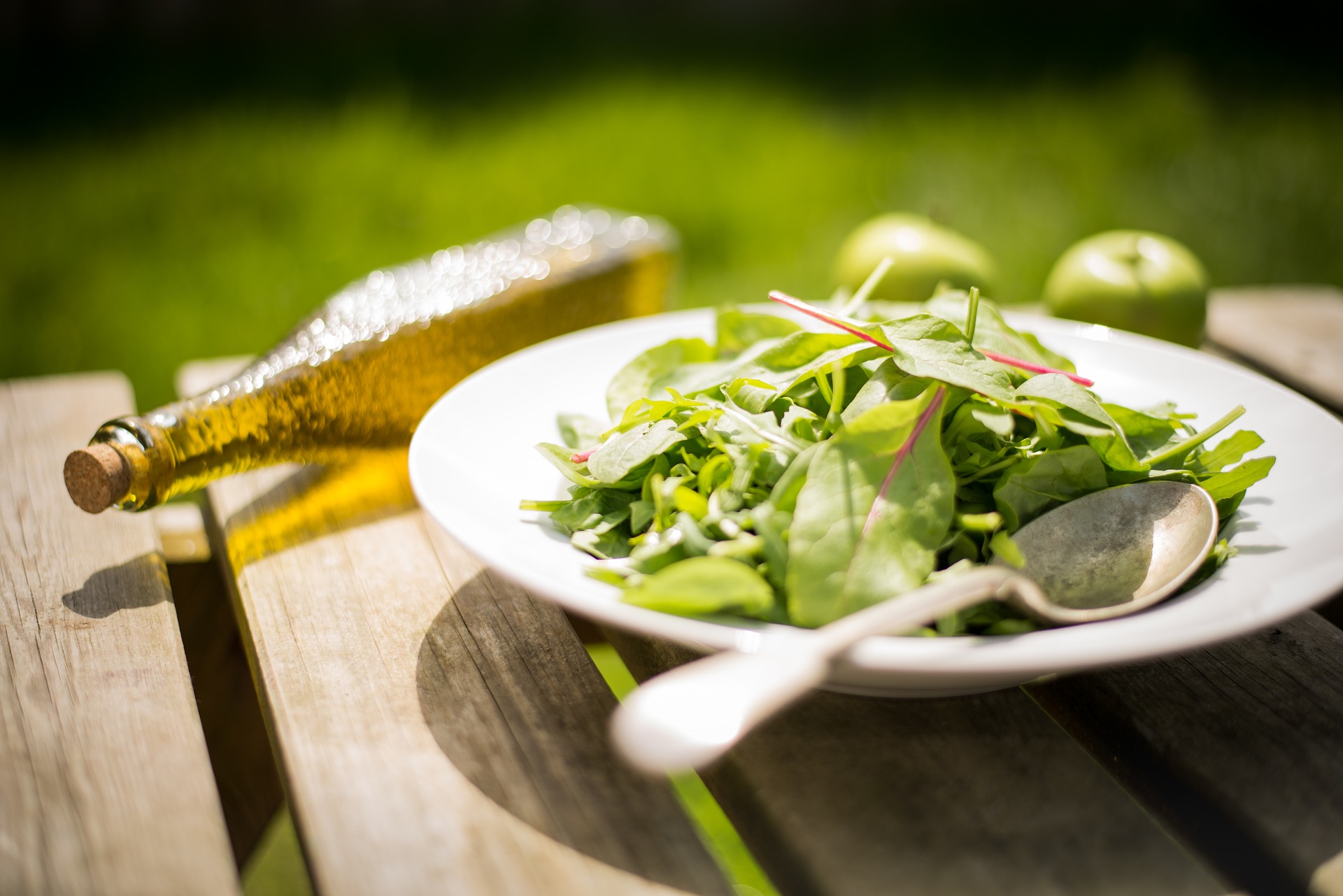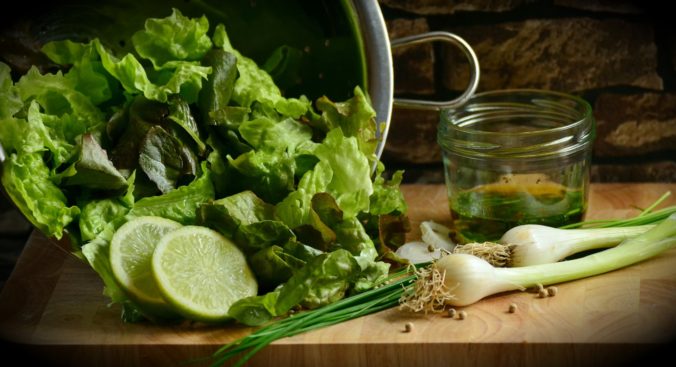It’s no secret that I love food.
Growing up in a predominantly French culture, food has been at the center of my life for… well, my entire life! Beyond it being a way to fuel myself, I see it as a tool to communicate and connect with loved ones, a means to experience not only the world around us but also its history through our senses.
In this context, it’s not surprising that I’m saddened by the messed up relationship that I see so many people have with food right now, stripping it from its nourishing nature and setting it up as a means for division and judgement.
Let me make one point very, very clear: food has no intrinsic moral value.
Among the foods that have been tossed at the forefront of this issue―yes, this is a terrible yet very deliberate pun―THE SALAD.
It baffles me that, throughout the Western world, salad now seems to embody this battle, with one side clutching to this idea of salad as a “diet food” and the other side decrying and rejecting it.
Poor salad doesn’t deserve this treatment, people!

Of course, it all depends on how we choose to view our salad, and therefore how we choose to eat it.
ALWAYS HAVE A SALAD
Here’s now to not be satisfied with your salad, and create bad associations with them in your mind: choose poor quality, out-of-season (and therefore flavourless) ingredients, avoid any dressing, and force yourself to ingest this concoction as your only course and entire meal.
It sounds unappealing when you put it like this, right?
Of course it does! I mean, how can we expect to look forward to eating something when we’re putting so much effort in making it unpalatable?
At the same time, one of the main struggles that my clients and my Special Crew share with me when it comes to food is how difficult it is for them to eat as many vegetable portions as they’d ideally like to consume.
With this in mind, I started joking around with the hashtag #alwayshaveasalad, as not only is it a great tool to help in eating those veggies consistently, but it’s one that I’d been using without really thinking about it.

Of course, for this to be actually implementable and sustainable, you have to understand that I’m not talking about the unpalatable salads I just described above. Nor do I mean eating only a small appetizer-sized salad and calling it a meal!
Sidenote: I always laugh when people tell me that they don’t like salads because they’re not filling enough. That’s a sure sign that there’s a volume issue at play! (Oh, look! Another terrible pun!)
Larger, main-course salads are an easy meal option, especially when we choose a large volume of greens paired with an adequate protein portion, and a variety of other ingredients to vary the texture and taste (which are two very important components when it comes to meal satisfaction).
But there’s another, rather elegant way to eat our salad…
THE FRENCH SALAD COURSE
While big, meal-sized salads can be quite scrumptious (and they do make a regular appearance on my table, believe me!), there’s another way of eating salad that’s much simpler, much more ancient, and that most of us could benefit from: the French salad course.
In a typical French meal, salad will be always be served either alongside the main course, or just after, as a nice refreshing finish and to aid with digestion.
I’ve also found, not only for myself but for my family and friends, as well as clients, that having a salad after your main course works as an interesting regulator: since we know we have an entire other course coming, albeit a light one, it makes it easier to gauge our food intake until we’re just satisfied but no more. It also encourages a slower eating speed, which most of us can benefit from!

Adding more mindfulness to our meals is beneficial for everyone. Remember that it’s never about being good or bad, but about being fully present!
Longer, slower meals can mean deeper conversations, stronger connection, and more memorable shared experiences!
Now who’s ready for salad?


